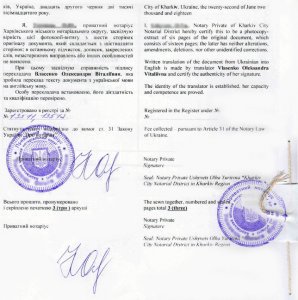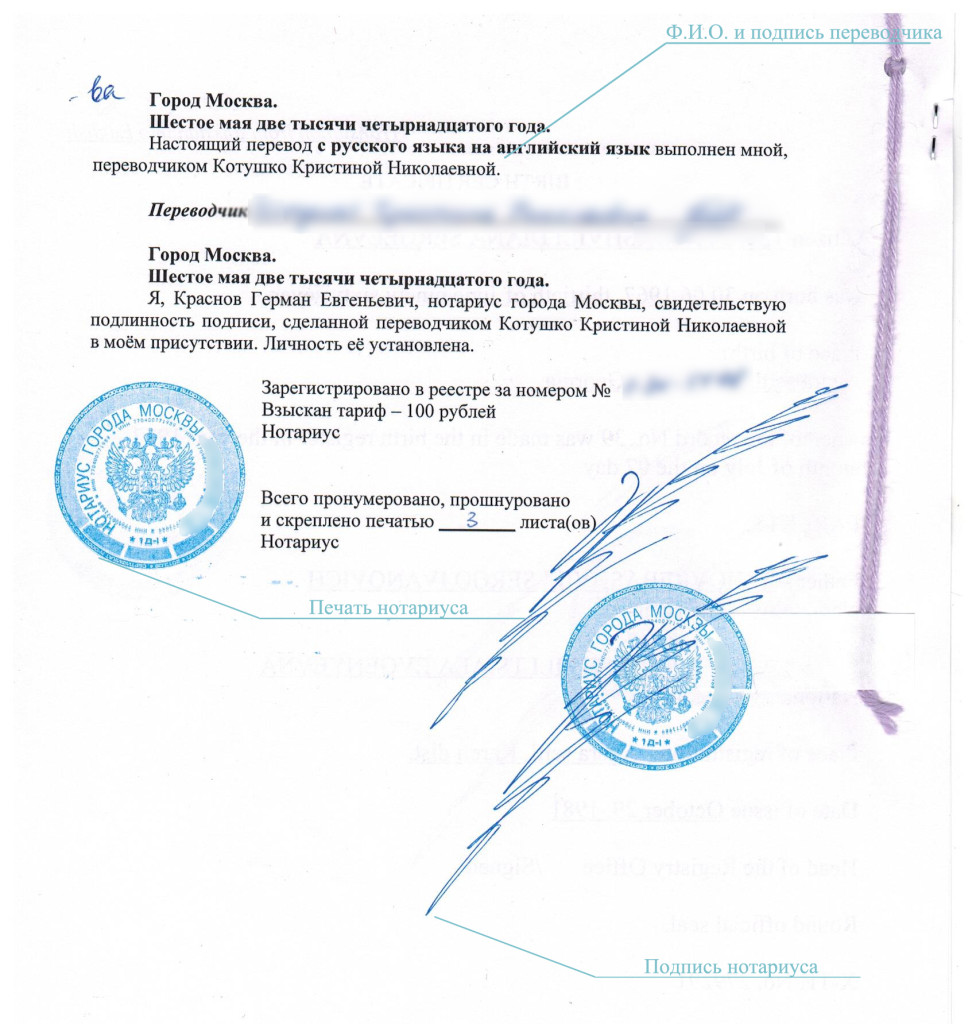Initially, we did not intend to write such an article, since the concept and phrase “notarized translation” has become so firmly embedded in the lexicon of translators and clients that, it would seem, there is no need for additional clarifications. However, practice has shown that this is not the case. As part of improving general legal literacy, we want to write what a notarized translation is, what it consists of and what it is.
So, in order to immediately remove all the questions, take into account: all foreign documents intended for use in the official bodies of the Russian Federation must be translated into Russian and notarized on the territory of Russia. There are no exceptions to this rule. For nobody. Nowhere. We have specially highlighted the most important parts of our statement. They are not discussed and absolutely indisputable. If you managed to contact any official body without translating your documents and get the required service, be aware that this happened due to illiteracy and / or connivance of an employee of this institution.
into Russian and notarized on the territory of Russia. There are no exceptions to this rule. For nobody. Nowhere. We have specially highlighted the most important parts of our statement. They are not discussed and absolutely indisputable. If you managed to contact any official body without translating your documents and get the required service, be aware that this happened due to illiteracy and / or connivance of an employee of this institution.
Moreover, it was against the law. How this situation will turn out later is unknown; perhaps nothing terrible will happen for you, or proceedings will be held. That is why we urge you and strongly recommend: do not waste time, effort and nerves on arguments, it is easier to attend to a high-quality translation in advance.
It is also important that translations must be certified on the territory of the Russian Federation – and nowhere else. It makes no sense to spend money on translation in the country where you receive your documents if they are intended for use in Russia. You will still have to do the translation again, and some government agencies even disapprove of documents certified in other constituent entities of the Federation.
What is notarization of a translation? To explain the meaning and necessity of this phenomenon, it is necessary to understand who has the right to engage in translations from a legal point of view. In accordance with the law, the right to work is defined in a diploma or other educational document. This system works great for technical and engineering specialties, but in relation to translation activities around the world, a licensing practice has long been introduced. Naturally, in different countries there are different types of licensing: somewhere translators receive licenses individually, somewhere organizations are licensed.
To explain the meaning and necessity of this phenomenon, it is necessary to understand who has the right to engage in translations from a legal point of view. In accordance with the law, the right to work is defined in a diploma or other educational document. This system works great for technical and engineering specialties, but in relation to translation activities around the world, a licensing practice has long been introduced. Naturally, in different countries there are different types of licensing: somewhere translators receive licenses individually, somewhere organizations are licensed.
In Russia, the system of licensing or accreditation for translators is not applied, therefore the main document allowing to carry out professional activities is still a diploma. Since the need to translate documents into Russian in our country is great, in order to remove additional restrictions and carry out the supervisory function, the procedure for verifying the authenticity of the translator’s signature by a notary is used.
This is how the notarial act is officially called, which we habitually call a notarized translation or notarization of a translation. In this case, the notary performs the supervisory and screening function, since he can only certify the translation of documents to the one who presents him with the original of his passport and diploma. In this case, the notary does not confirm the authenticity of the document itself, the authenticity or correctness of the translation, or its correctness. In fact, he confirms that he was approached by a person who, presenting his diploma and passport, signed a specific document. This is a very important point. You must clearly understand that all responsibility for the translation lies solely with the translator, and the presence of seals on the text does not make it correct. Be sure to check your translations yourself.




